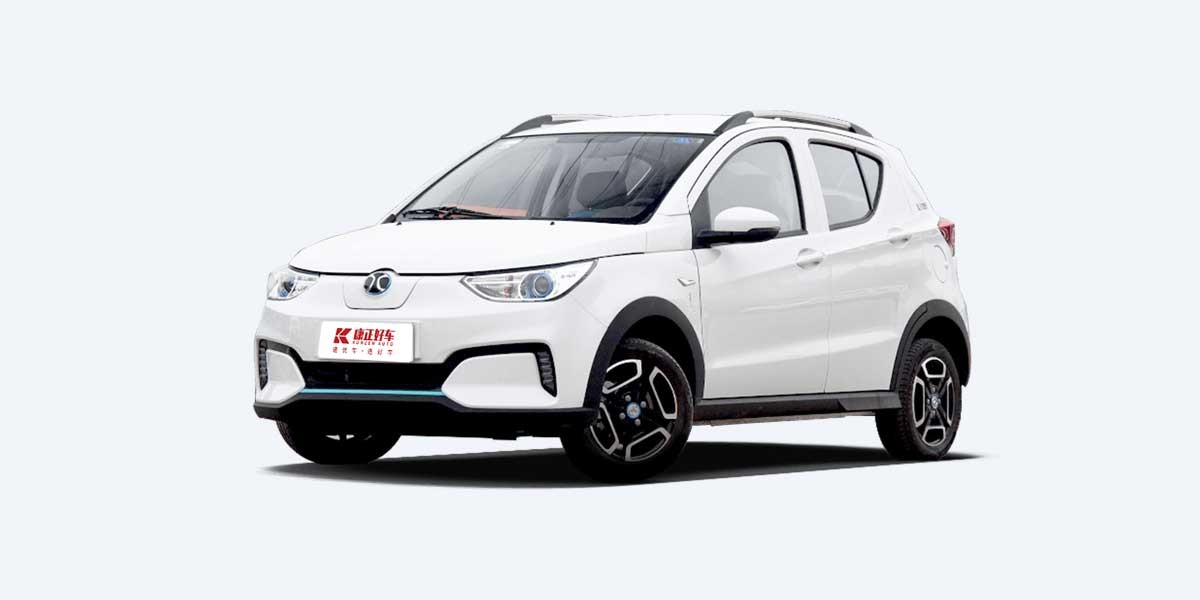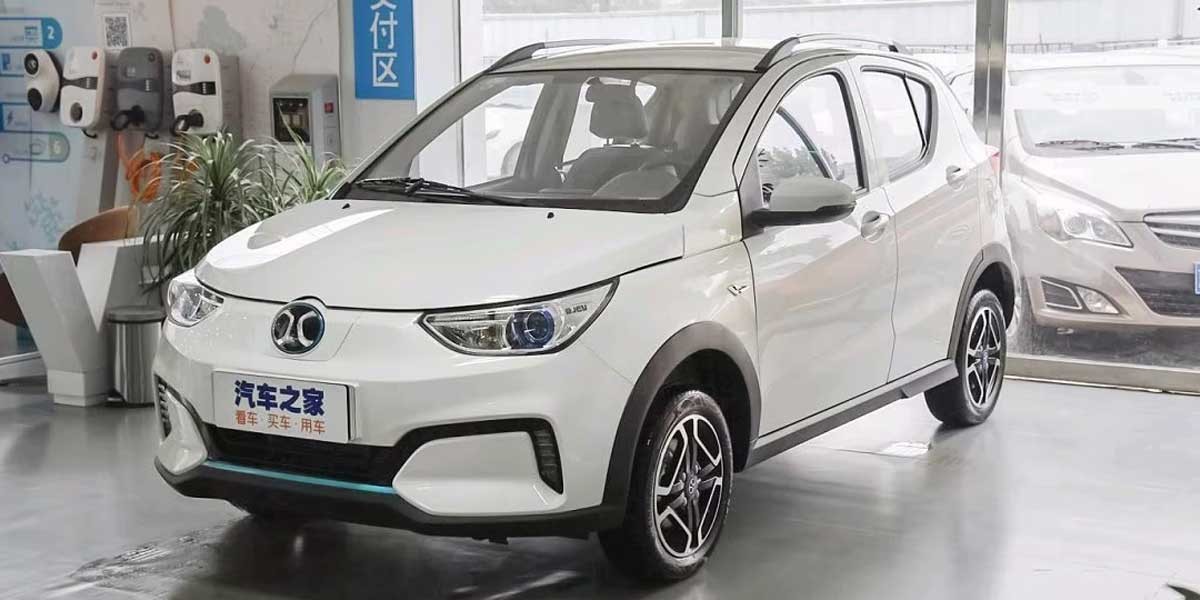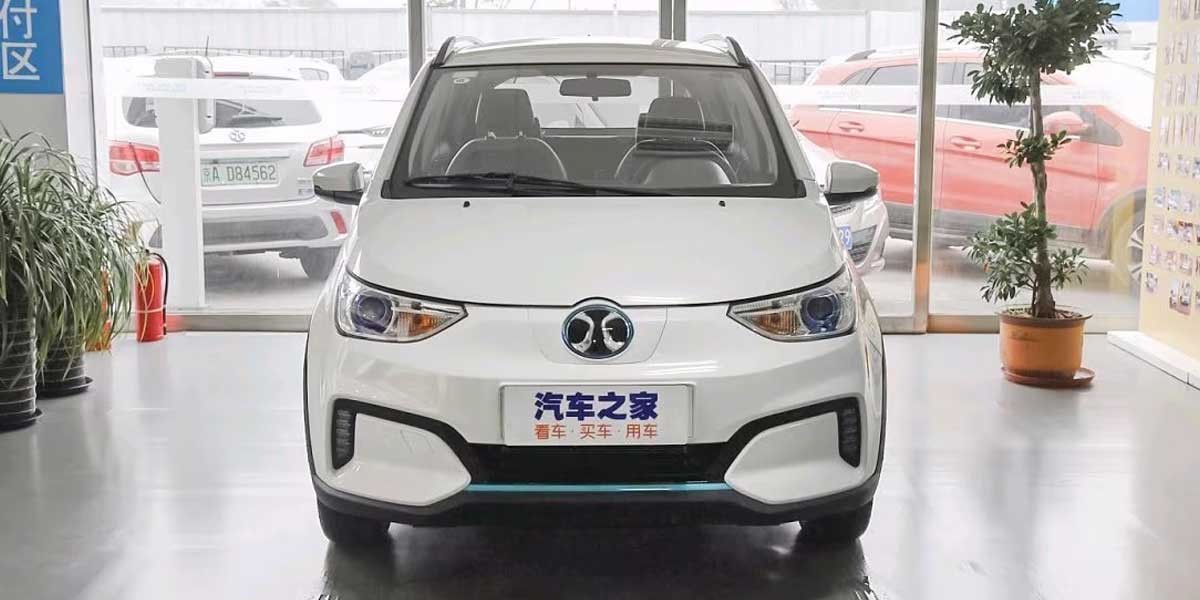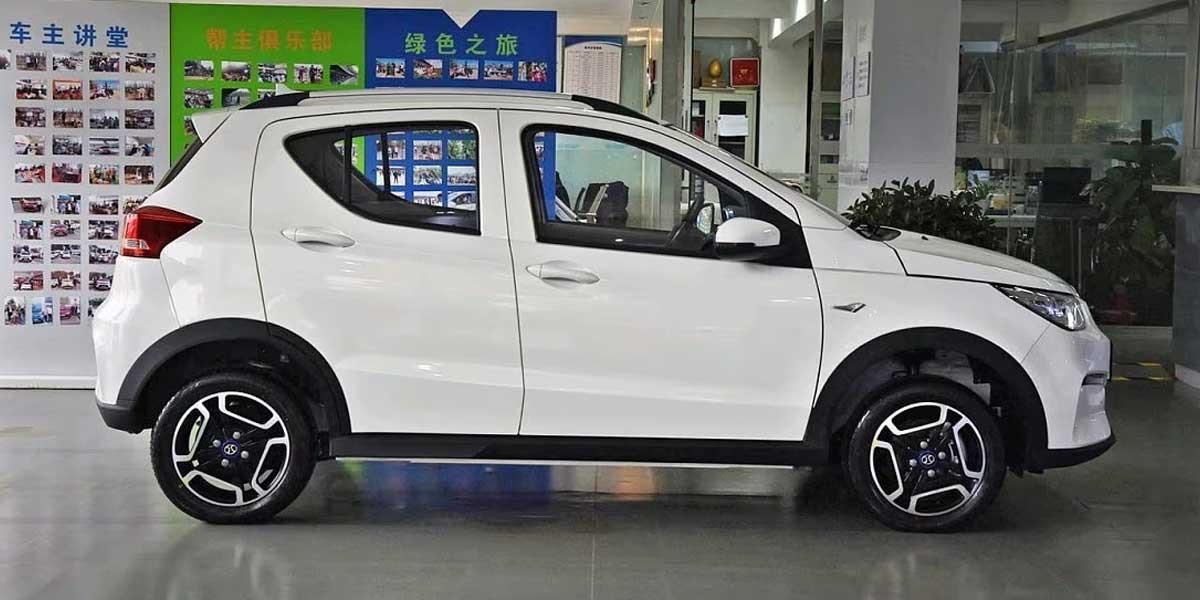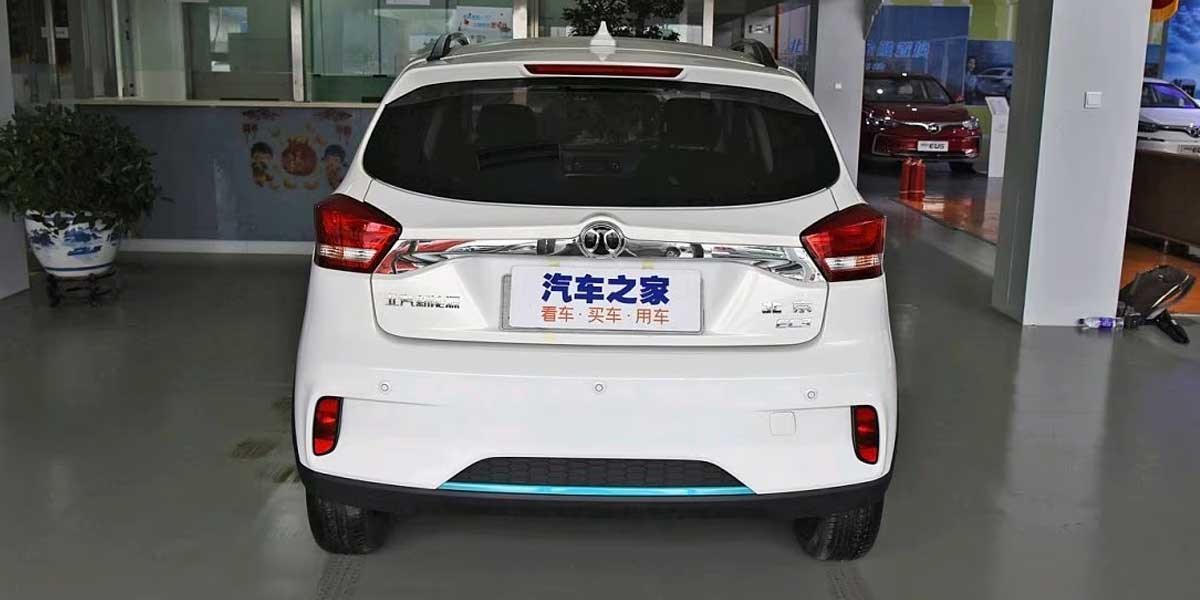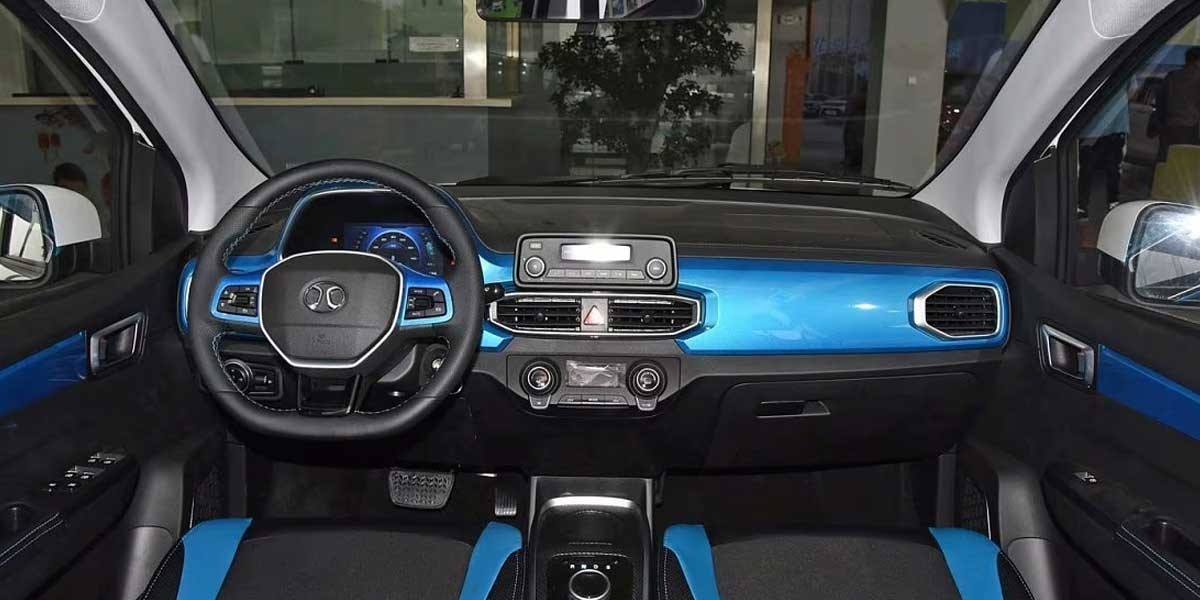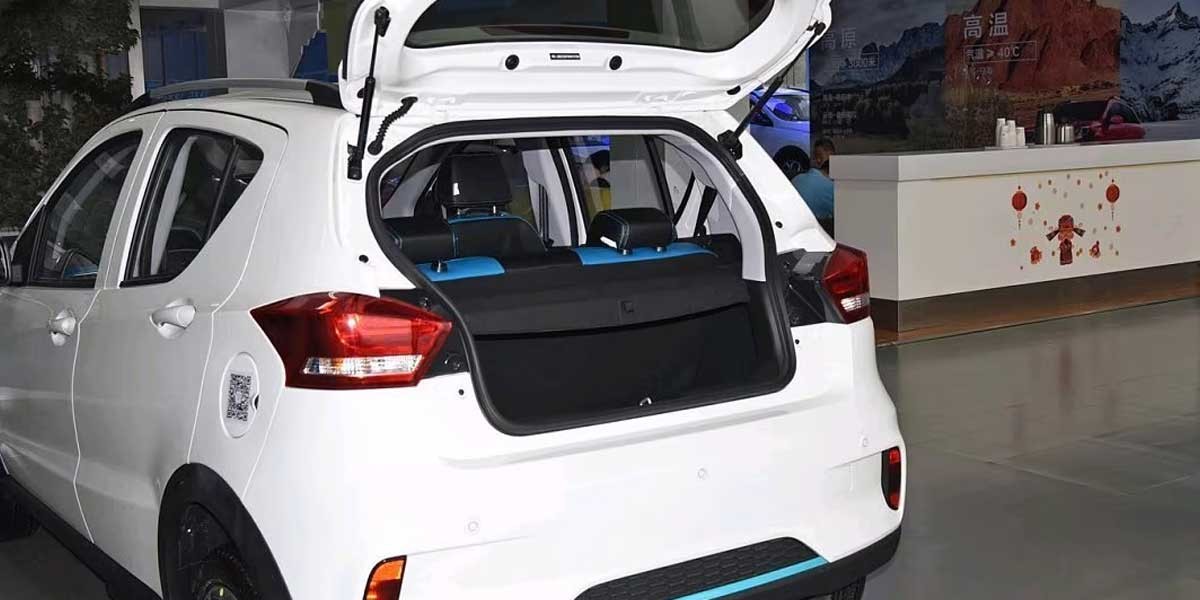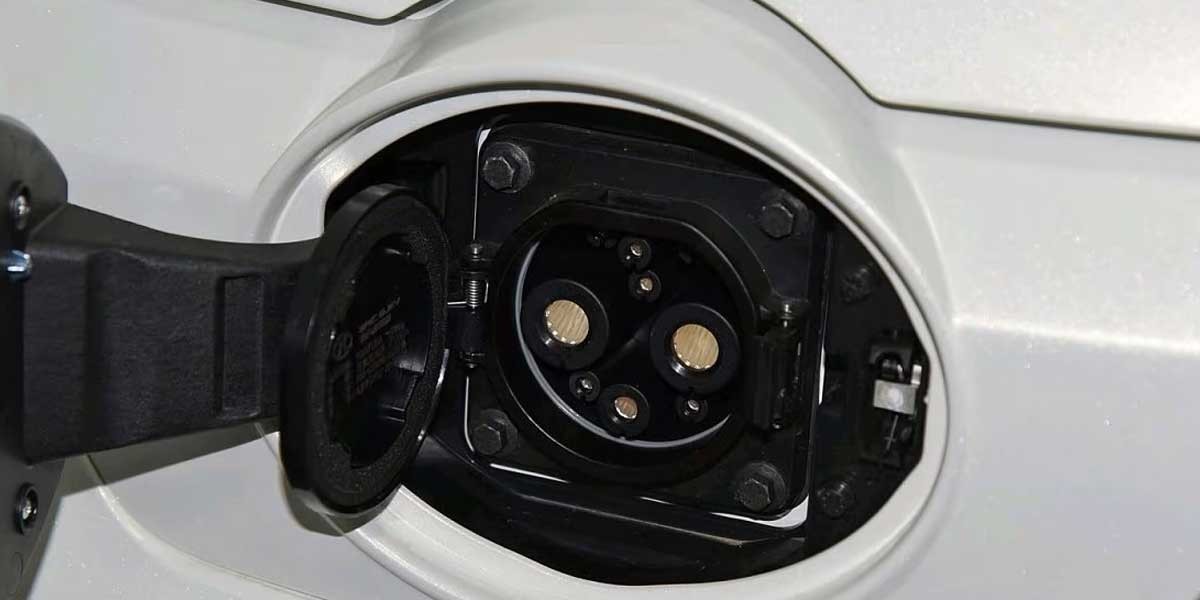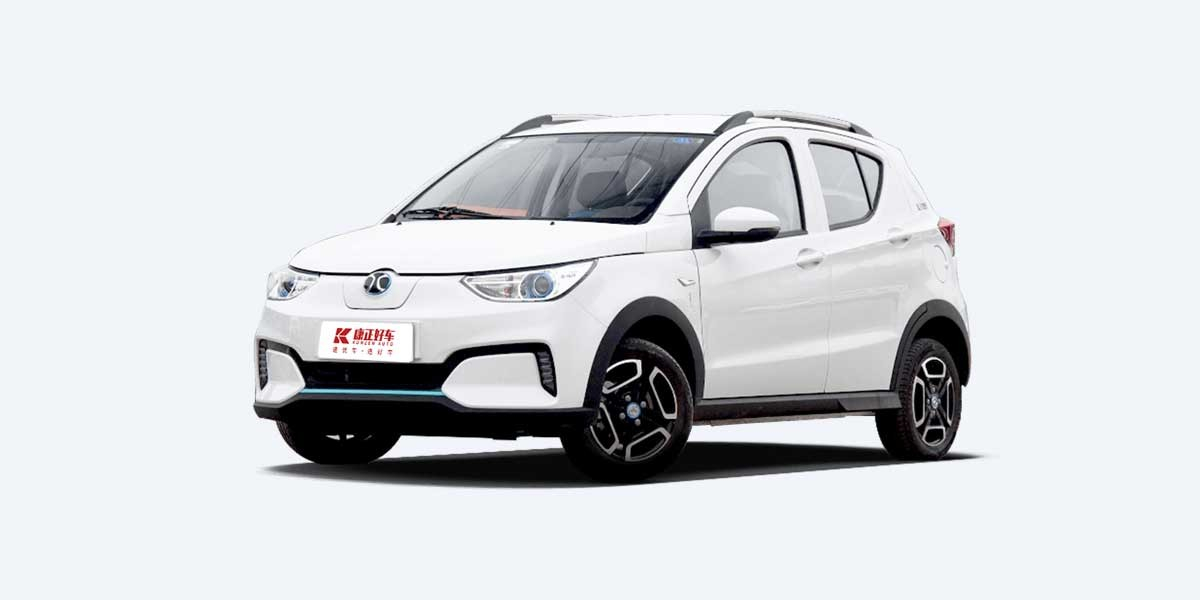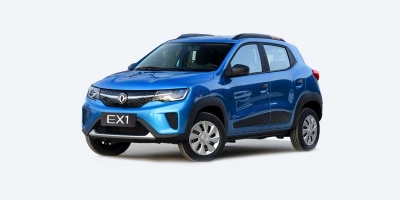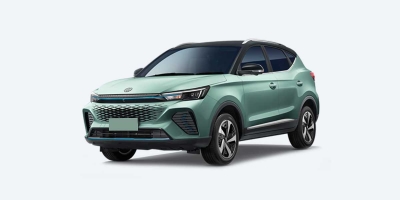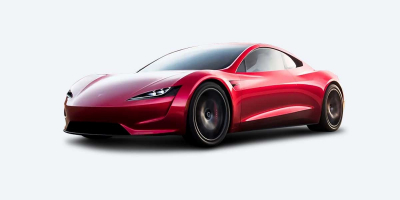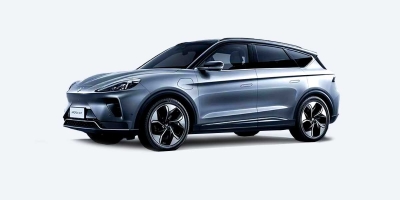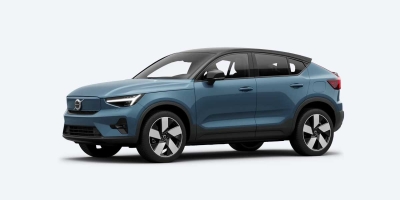BAIC BJEV EC3
User Rating: 4.00 / 5
![]()
![]()
![]()
![]()
![]()
BAIC BJEV EC3 Review ⚡
What is BAIC BJEV EC3?
BAIC BJEV EC3 is an electric car designed for city drivers seeking efficiency and practicality. With a compact frame for maneuvering through tight spaces, it provides a clean, emission-free ride, making urban commutes smoother and more eco-friendly.
BAIC BJEV EC3 price:
US$ 11326 *
| manufactured in | China |
| sales start | 2019 |
| range (km) | 301 |
| battery (kWh) | 30.7 |
| max. speed (km/h) | 120 |
| 0 to100 km/h | 9 |
| power (h.p.) | 60 |
| car type | liftback |
| drive type | FWD |
* Minimum price set by the manufacturer, excluding taxes and additional options
BAIC BJEV EC3 - A Leap Towards Eco-friendly Urban Commuting
China's charge into the future of automotive engineering unveils itself through the BAIC BJEV EC3, a vehicle at once pocket-friendly and pro-planet. Here stands a testament to the Middle Kingdom's foray into electron-propelled conveyances, encapsulating affordability, operational efficiency, and a nod to Mother Earth's well-being.
Main Technical Specifications of BAIC BJEV EC3
Powertrain and Performance Attributes of BAIC BJEV EC3
Thrust into the limelight with a 60 horsepower electric drivetrain, the EC3 emerges as a stalwart ally for both city slicking and far-striding adventures. Achieving velocities uo to 120 km/h, this electric liftback doesn't trade vigor for vim, presenting a balanced act on urban highways and byways.
Endurance Meets Expediency: BAIC BJEV EC3's Battery Specifications
At the core of the EC3 lies a 30.7 kWh battery, a storeroom of electrons promising an astounding 301 km trek on a single embrace of energy. Sporting an energy density of 143.92Wh/kg, it underscores the vehicle's commitment to efficiency. A mere 9 hours tethered to a Wallbox charger replenishes its vigor, while a fast-charging station offers an expedient 80% refill in just 40 minutes, ensuring minimal downtime in your travels.
Design and Comfort: Unwrapping the BAIC BJEV EC3's Dimensions
Form and function marry within its compact dimensions – 3684 mm in length, 1630 mm in width, and soaring 1518 mm in height, all grounded by a 2360 mm wheelbase. Despite its diminutive stature, the EC3 offers a commodious cabin, balancing lithe maneuverability with a maximum operating weight of 1,430 kg. Adorned with 14-inch wheels and weighing in at a mere 1140 kg, this featherweight contender punches well above its weight class in efficiency and agile urban navigation.
What's the Price Tag on the BAIC BJEV EC3?
One might ponder upon the monetary exchange required to possess such a symbol of advanced electric mobility. While the price can be a fluctuating spectrum based on various factors, the EC3 is positioned as a wallet-friendly option within the electric vehicle (EV) sphere. It beckons prospective owners with the allure of an eco-conscious ride devoid of the premium cost typically associated with green vehicles.
Thus, the BAIC BJEV EC3 stands not just as a machine, but as a harbinger of China's electric dream, melding the realms of affordability, eco-friendliness, and a commendable range into a singular mechanized entity. Its specification list reads like a love letter to the environmentally conscious, beckoning a shift towards more sustainable vehicular choices. Embark on a journey of eco-friendly exploration with the BAIC BJEV EC3, where the roads less travelled need not be littered with carbon footprints.
F.A.Q. about BAIC BJEV EC3:
What is the range of an electric vehicle on a single charge?
The BAIC BJEV EC3 has a range of 301 kilometers (187 miles) on a single charge.
How long does it take to fully charge an electric vehicle?
For specific charging times, you would need to check the type of charger used as it can vary. Typically, a standard home charger (AC) might take around 6-8 hours.
Are electric vehicles more expensive than gasoline cars?
The BAIC BJEV EC3 is priced at approximately $11,326 (€9,665 or £8,340), which can be competitive compared to gasoline cars in the same segment.
What is the battery capacity?
The battery capacity of the BAIC BJEV EC3 is 30.7 kWh.
What is the top speed?
The BAIC BJEV EC3 can reach a top speed of 120 km/h (74.6 mph).
What is the total power?
The BAIC BJEV EC3 has a power output of 60 horsepower (44.7 kW).
Can electric vehicles be charged at any charging station?
Yes, most electric vehicles, including the BAIC BJEV EC3, can be charged at various public and home charging stations compatible with standard connectors.
What are the environmental benefits of electric vehicles?
Electric vehicles like the BAIC BJEV EC3 produce zero tailpipe emissions, which helps reduce air pollution and greenhouse gas emissions.
Do electric vehicles qualify for government incentives or rebates?
Depending on your location, the BAIC BJEV EC3 may qualify for various government incentives or rebates aimed at promoting electric vehicle adoption.
Comparison of BAIC BJEV EC3:
Range
First up in the spotlight, it’s the range. The BAIC BJEV EC3 sports a respectable 301 km (187 miles) on a single charge. Compare that to the Renault Zoe, which stretches its legs to an impressive 394 km (245 miles). The Nissan Leaf presents a balanced 270 km (168 miles), while the VOLKSWAGEN e-Up! delivers a more modest 260 km (162 miles). Clearly, the EC3 holds its own but falls short of the unmatched longevity of the Zoe.
Acceleration
Now for the speed demons and green tech enthusiasts salivating over the acceleration metrics. The BAIC BJEV EC3 hits the 0 to 100 km/h mark in a zippy 9 seconds. The Nissan Leaf trumps this with an impressive 7.9 seconds, and the Renault Zoe, not far behind at 9.5 seconds. The quirky VOLKSWAGEN e-Up! clocks in at an unremarkable 11.9 seconds. If you’re eyeing sprightly performance, the EC3 serves up enough juice to keep the throttle-happy pleased.
Power
Under the hood, each vehicle flexes a different level of muscle. The BAIC BJEV EC3 delivers 60 hp but doesnt pack the same punch as the Renault Zoe with its robust 108 hp or the Nissan Leaf packing 147 hp. The Volkswagen e-Up! offers a modest 82 hp. In the land of horsepower, the EC3 might feel like bringing a butter knife to a sword fight, but it makes up for it in other arenas.
Charging Time
Let’s juice these babies up -- how long does it take? The BAIC BJEV EC3 recharges its 30.7 kWh battery in about 7 hours using a standard home charger. The Renault Zoe? It snacks on electrons for about 9-10 hours with a similar setup, owing to its larger 52 kWh battery. The Nissan Leaf with its 40 kWh battery needs around 8 hours. Finally, the Volkswagen e-Up! takes just over 5 hours for its 32.3 kWh battery. For the impatient among us, the e-Up! takes the gold here.
Price
And then there’s the moolah. The BAIC BJEV EC3 rocks a wallet-friendly starting price of approximately 11,326 USD (8,740 GBP; 10,200 EUR). The Renault Zoe on the other hand, empties pockets a bit more starting at 33,000 USD (25,490 GBP; 30,000 EUR). The Nissan Leaf follows closely with a starting price of around 32,500 USD (25,000 GBP; 29,500 EUR). Meanwhile, the Volkswagen e-Up! presents a gentle dent in the bank with a price of around 23,000 USD (17,750 GBP; 21,000 EUR). If value-for-money is the game, the EC3 might just be the surprise MVP.
In this electrifying showdown, the BAIC BJEV EC3 carves out a niche with its commendable range, brisk acceleration, and unbeatable price, though it’s clear the heavy-hitters like Zoe and Leaf dominate in power and extended range. Choose your EV wisely, balance speed, endurance, and budget – and let the future of green driving unfold effortlessly!
Submit a request to add information about your company to the MOTORWATT EV Database

